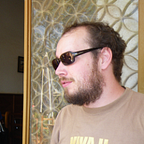The African Union Readies an Army to Fight Boko Haram
Don’t count on success
by PETER DÖRRIE
Boko Haram is officially an international problem. At least according to the African Union, which asked the United Nations Security Council on Jan. 29 to greenlight an intervention force to bring the Islamist group to its knees.
The A.U. plans a 7,500-strong military force, named the Multinational Joint Task Force, and staffed by Nigerian, Cameroonian, Chadian and Beninese troops.
If the coalition gets the go-ahead, the soldiers will base in their respective countries, but coordinate and assist each other.
The decision by the A.U. to establish the MNJTF is an important development in the fight against Boko Haram.
Boko Haram controls a territory approximately the size of Belgium, centered in Nigeria’s northeastern states Borno, Adamawa and Yobe. The terror group also staged frequent and large-scale attacks into Cameroon in recent months, one of the main reasons that international action has become a pressing concern.
The Islamist group thrives because of an overwhelmed Nigerian army, porous borders and lack of coordination between national militaries—all things the MNJTF is supposed to prevent.
But the MNJTF is not necessarily that important from a military perspective. Rather, it indicates a shift in Nigerian policy, which until now has acted like the situation was under control. For years, Abuja gave the impression that all it needed were more and better weapons.
There’s a chance the Nigerian government was either hallucinating—a kind of shock at Boko Haram’s metastasizing territory and civilian death toll—or there were political calculations at play. With the country’s hotly-contested presidential elections almost over, Abuja seems ready to ask for help.
But while establishing the MNJTF in the form envisioned by the A.U. is a long overdue step, it’s unlikely to bring a quick end to the conflict.
Few of the 7,500 soldiers the A.U. envisions for the MNJTF will come in the form of an additional boots on the ground. For one, Nigeria and Cameroon don’t have any more troops they could easily deploy. Chad is also unlikely to send anything more than a small number of soldiers into the fray.
Nigeria has up to 25,000 soldiers deployed in its anti-insurgency operations. That’s such a large chunk of its combat-ready troops, the government is considering withdrawing soldiers from peacekeeping missions elsewhere.
The situation in Cameroon is actually worse.
Of Cameroon’s 12,500 soldiers in active duty, more than half are already committed to fight the insurgency.
Then there’s the Chadian army. Chad has some of the best-equipped and experienced troops in Africa for this type of warfare. They proved to be ruthlessly efficient in their own country, and in Mali.
But Chad deployed up to 2,000 men to Cameroon, and the country has its own security priorities to think about. Chad takes part in peacekeeping missions in Mali and the Central African Republic. There’s threats to its own territory from Nigerian, Libyan, Sudanese and indigenous rebels.
So don’t bank on the Chadians to greatly boost their contribution.
In total, the three countries have deployed about 34,500 troops against Boko Haram. The MNJTF will likely recruit its staff from among these soldiers—more or less a “rehatting,” in U.N. peacekeeper parlance.
The MNJTF will not turn the tide by weight of numbers. But the good news is that new organization could fight Boko Haram more efficiently.
The participating countries can pool their aircraft and leverage their advanced communications. It’s the only real materiel advantage they have over Boko Haram, as the Islamists captured much of their equipment directly from Nigerian armories.
The terror group’s estimated 5,000 to 15,000 fighters are also heavily outnumbered.
Most importantly, the task force is a vehicle to share intelligence and plan specific operations. In recent days, Chadian troops recaptured a Nigerian town from Boko Haram. That’s something the Nigerian army has been unable to do on their own lately.
Finally, let’s hope the MNJTF encourages Nigeria to rethink its past approach to tackling the insurgency. Why? Escalating violence at the hands of Boko Haram is not primarily because of a lack of firepower. It’s because of a highly dysfunctional Nigerian army and state.
